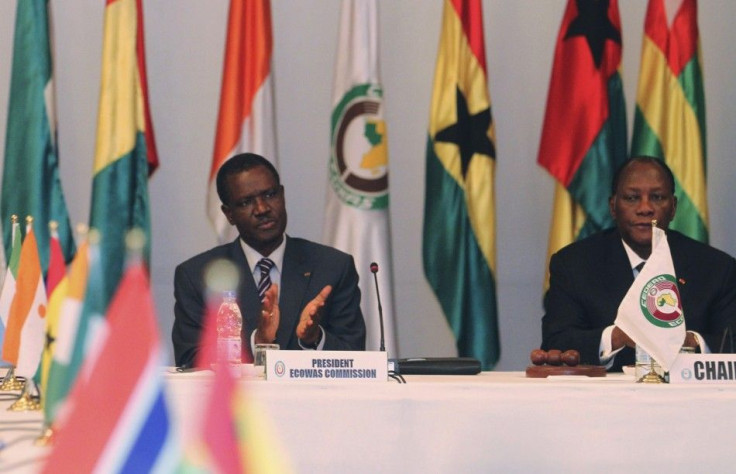West African Regional Bloc ECOWAS Suspends Mali Following Military Coup

The Economic Community of West African States (ECOWAS), a regional body consisting of 15 member states, decided on Wednesday to suspend the Mali's membership in the wake of the military coup in that country which overthrew the democratically elected government.
The African Union has already suspended Mali.
Suspension means that Mali may no longer participate in any decision-making bodies of ECOWAS.
At an emergency meeting, held in Abidjan, Cote d' Ivoire, ECOWAS members condemned the military coup in Mali. Regional leaders at the summit highlighted the importance of protecting the democratically-elected government in Mali and restoring constitutional order to the state.
All member states were urged to impose a travel ban on Mali and to increase diplomatic and economic pressures on the coup leaders - using financial sanctions and, if necessary, the threat of force.
ECOWAS members agreed to take all necessary measures to end the rebellion and secure the territorial integrity of Mali, including the use of force. According to a statement following the meeting, ECOWAS has put the... Standby Force in a state of readiness for all eventualities.
Decisions made in Abidjan echo widespread international sentiments and closely parallel a recent UN statement that read, The Security Council strongly condemns the forcible seizure of power from the democratically-elected government of Mali by some elements of the Malian armed forces.
Furthermore, the European Union and Canada have suspended aid to the country, while the U.S. more recently followed suit.
On March 22, military forces, led by middle-ranking army officer Amadou Sanogo, overthrew the government and seized the palace of President Amadou Toumani Toure. Leaders of the coup complained that the President had not provided the military with adequate resources to fight the Tuareg rebels in the north.
Sanogo, who told the Associated Press news agency in the capital, Bamako that he is in control of all the country, has since invited negotiations with the Tuareg rebel group and has announced details of a new proposed constitution.
The constitution is intended to restore the rule-of-law in the transitional period and lays out plans for a new government.
However, this has not appeased the vociferous foreign and domestic opposition to the coup.
The Malian National Assembly and key legislative figures, hope that ECOWAS' actions and increased domestic and international pressure on the coup leaders will facilitate a speedy restoration of Toure's constitutional government in time for the presidential elections that had been scheduled for April. The elections have now been cancelled by the military rulers.
This coup d'etat is unconstitutional and we will not accept it, said Soumaila Cisse, one of the main presidential candidates, Al-Jazeera reported.
In addition to being unconstitutional, Alassane Ouattara, President of Cote d'Ivoire and current ECOWAS Chairman of the Authority of Heads of State and Government, also considers the coup a step backwards for Mali, according to a BBC report.
We cannot allow this country endowed with such precious democratic instruments, dating back at least two decades, to leave history by regressing, he said. It's why Mali needs to immediately return its democratic institutions to normal.
This position is non-negotiable.
Despite this firm opposition, a large number of Mali citizens do actually support the coup. Following the ECOWAS meeting, thousands took to the street to actually support the military leaders and according to the Associated Press, they trust the new leaders and are willing to give the new constitution a chance.
© Copyright IBTimes 2025. All rights reserved.





















